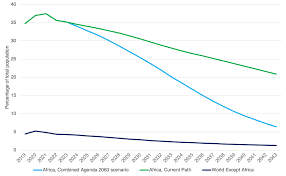fashion analyst | Posted on | News-Current-Topics
When will poverty end in Africa?
Blogger | Posted on
0
0 Comment
Fashion enthusiast | Posted on
Let’s first see some facts:
· In 2014-16, 233 million people were undernourished in sub-Saharan Africa.
· In 2012, 47 percent of the total population of Sub-Saharan Africa was in poverty.
· Africa – the world’s poorest continent – has the highest population growth rate in the past 6 decades.
· Fewer than 20 percent of Africa women are educated.
· More than 1 million people in Africa die of malaria every year.
These numbers, along with others, very well highlight the real picture of Africa. From education to healthcare, in every department, the continent lags by a seamless margin. And this is the biggest reason why Africa is so poor. Its overall infrastructure is crumbling—and one of the reasons behind that is conflicting interests of political parties there and the ignorance from the global community. So if we’re looking to end poverty there, we must work in every sector together to fix all the wrongs.
Now coming to the main part of your question—when will poverty end in Africa?
The answer is—NO ONE KNOWS!
In fact, if anything, the situation is worsening. According to a report by World Bank, more people in Africa are poor today than in 1990, even though the share of Africans who are poor fell from 56% in 1990 to 43% in 2012. (Don’t be confused! Factor population growth.) 2 in 5 adults there are illiterate. And also the violence is increasing.
This might sound cynical and skeptical but the absolute end of poverty in Africa is not possible in this century.
Because no one exactly knows how to put an end to poverty in the continent. Hundreds of organizations are working across to fix this. Billion dollar aids are pouring in to help the poor. Yet, the situation isn’t getting any better.
Even economists are divided on how we can end this poverty. Some say international aid is necessary, others contend for internal policy change.
So again, no one knows when the poverty will end in Africa. Maybe, once the Artificial Intelligence is in the mainstream, maybe that can change this picture.

0
0 Comment
